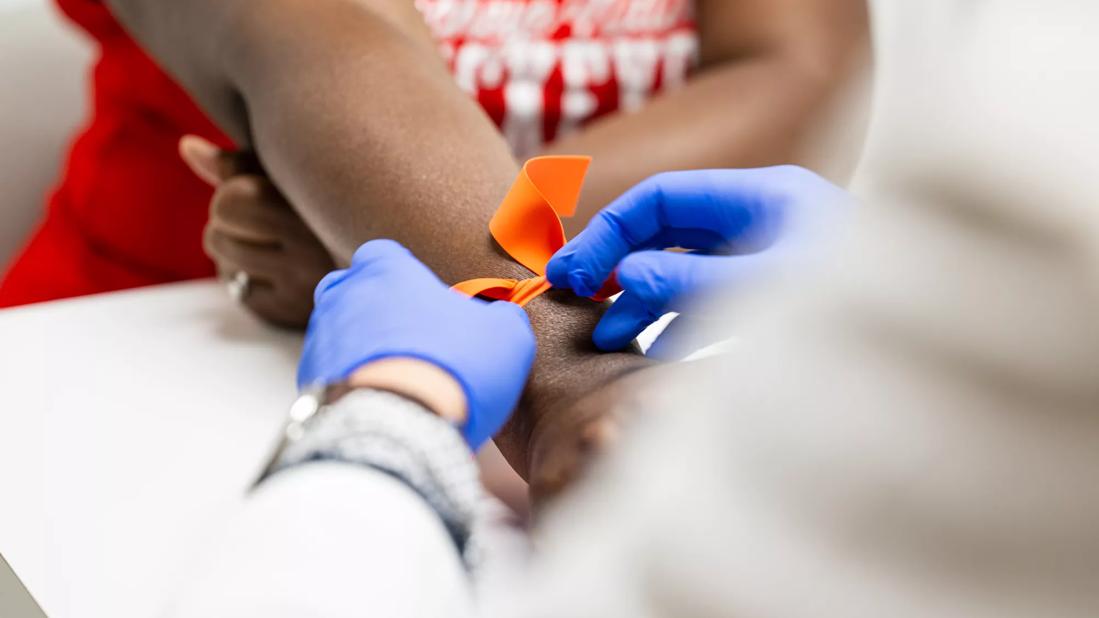Cleveland Clinic Cancer Institute takes multi-faceted approach to ensuring clinical trials representation

Fewer than 20% of adults in the U.S. with cancer participate in clinical trials, and of those, an estimated 85% are white men. Black and Latino Americans make up 13% and 16% of the U.S. population respectively, but fewer than 5% of Black patients and just 1% of Latino patients enroll in clinical trials.
Advertisement
Cleveland Clinic is a non-profit academic medical center. Advertising on our site helps support our mission. We do not endorse non-Cleveland Clinic products or services. Policy
Studying how therapies work across various demographics is crucial for validating efficacy across different populations. When trials don’t represent the people who are affected by a disease, this compounds healthcare gaps.
At Cleveland Clinic Cancer Institute, we are committed to making clinical trials available to everyone and to using evidence-based strategies to understand the needs of all populations. This will be achieved by a number of strategies, including:
Decentralizing trials. Our goal is to decentralize trials and allow more care at our regional sites by the end of 2024. “Coming to our main campus is an obstacle for many people,” says Director of the Novel Cancer Therapeutics Center Wen Wee Ma, MBBS. “Our oncology colleagues at our 16 regional facilities are well situated to serve the local communities, and we’re working to build up our presence of clinical trials across those locations.”
“One of the largest hurdles for trial decentralization is the ability to ship trial medications, due to extra regulations involved,” explains Joel Saltzman, MD, a hematologist/oncologist who sees patients at Cleveland Clinic’s Taussig Cancer Center and Hillcrest Hospital. To overcome this issue, the institute plans to develop regional-specific investigational pharmacies that can ship trial medications to different regional sites.
Offering in-home care. Time constraints and lack of transportation are consistently named as reasons for declining trial participation. To address these concerns, Cleveland Clinic Cancer Institute is looking to transform clinical trial practices by offering care at patients’ homes. For some trials, the institute is working to enable mobile research teams, visiting nurses, phlebotomists and other providers to offer home visits to eliminate the time and inconvenience for patients to travel to participate in a trial.
Advertisement
Additionally, wherever possible, the institute is aiming to provide virtual visits for clinical trial consents.
Simplifying trial eligibility criteria. Historically, clinical trials have been quite strict in the criteria for patients who can participate. While this is sometimes necessary for gathering uniform trial data, it may inadvertently exclude patients who have no other treatment options and/or skew the reported-out study data such that it doesn’t accurately reflect the population who will use the medication in a real-world setting.
As such, the institute is engaging with trial sponsors and lead investigators at the early stage of study development to better understand the scientific objectives of each study. Where possible, the institute is encouraging study stakeholders to enact more liberal eligibility criteria. In some cases, trial sponsors may learn more about the generalizability of a medication if they include populations such as seniors and/or patients with prior malignancies or comorbidities (who are traditionally excluded from many clinical trials). The goal would be to expand trial participation to include these patients so long as they met certain fitness criteria.
Supporting older patients in accessing clinical trials. Despite FDA declarations that "there is no good basis for the exclusion of patients on the basis of advanced age alone," studies show older adults continue to be ineligible for many oncology and other trials. One means of overcoming this obstacle is by offering deintensification trials and other novel treatment approaches for older patients. For example:
Advertisement
Helping internal physicians and referring physicians identify appropriate trials. In addition to building out its clinical trial capabilities, the institute is educating fellow oncologists about ways to access trials. There are virtually thousands of cancer clinical trials going on at any one time around the country, and the treatment landscape is changing rapidly. “Trials can turn over very quickly so it’s hard for oncologists – particularly those who treat multiple types of cancer – to keep track of the best options for each patient,” says Dr. Ma. “Through clinical trial navigators, we make it easy for them to access our portfolio of trials.”
Educating patients about clinical trials early in their cancer journey. “It can take time to enroll in trials, so we encourage all oncologists and hematologists to educate patients about the value of clinical trials early on,” says Dr. Ma. The crucial first step, however, is to build trust. There are many myths that persist about clinical trials. It’s not uncommon for patients to express worries that they will receive a sugar pill or that they’ll be ‘treated like a guinea pig’. There is also fear in some communities stemming from historic mistreatment (ex: Tuskegee syphilis study).
To alleviate healthcare gaps, the institute is making outreach to patients in neighboring communities to working to better understand the needs of each community. This includes hosting listening sessions at houses of worship and other community centers to solicit input.
Advertisement
Outreach initiatives also include providing cancer screenings at convenient locations to identify early signs of breast, colorectal, lung and prostate cancer, as well as offering blood tests to find early markers of multiple myeloma, which disproportionately affects Black men and women.
The National Cancer Institute reported that 41% of Americans say they don’t know anything about clinical trials. Fortunately, there are many free resources available to help patients understand the value of trials and to address frequently asked questions. As one example, research demonstrated that sharing clinical trial videos available through ASCO prior to a patient’s first visit can make them more receptive to trial participation.
Making trials more patient centric. There is a movement afoot to gain patient input early in trial design, which hopefully will help to both improve patient experiences and to increase enrollment. “Our goal is to design trials that help patients live longer and feel better, but sometimes when trials are designed they may include elements that don’t particularly matter to patients,” explains Abhay Singh, MD, MPH, a hematologist/oncologist with Cleveland Clinic Cancer Institute. “It’s critical to have patients involved in trial design so they can share what trial outcomes matter most to them.”
These patient-focused initiatives may also include finding ways to balance the need for clinical data with the number of visits and the type of tests required for patients in the trials. If, for example, a trial requires patients to come in each week or to have an inordinate number of painful or cumbersome tests, that limits the number of patients who will be willing or able to participate.
Advertisement
Advertisement

New phase 1 trial showcases Neurological Institute’s interdisciplinary study capabilities

Cleveland Clinic Cancer Institute brings multidisciplinary care, precision oncology and clinical research to the United Arab Emirates

How to screen for and manage treatment-triggered uveitis

Growing public interest in hallucinogens highlights their therapeutic promise and potential perils

Previous studies, trial aims and the potential role of immunotherapy

Cleveland Clinic’s Adult Reconstruction Research leaders share what they’ve learned over 16 years

Research indicates strong rationale for expanding trial eligibility criteria

A three-step plan aimed at strengthening the institute’s infrastructure includes a renewed focus on mentorship